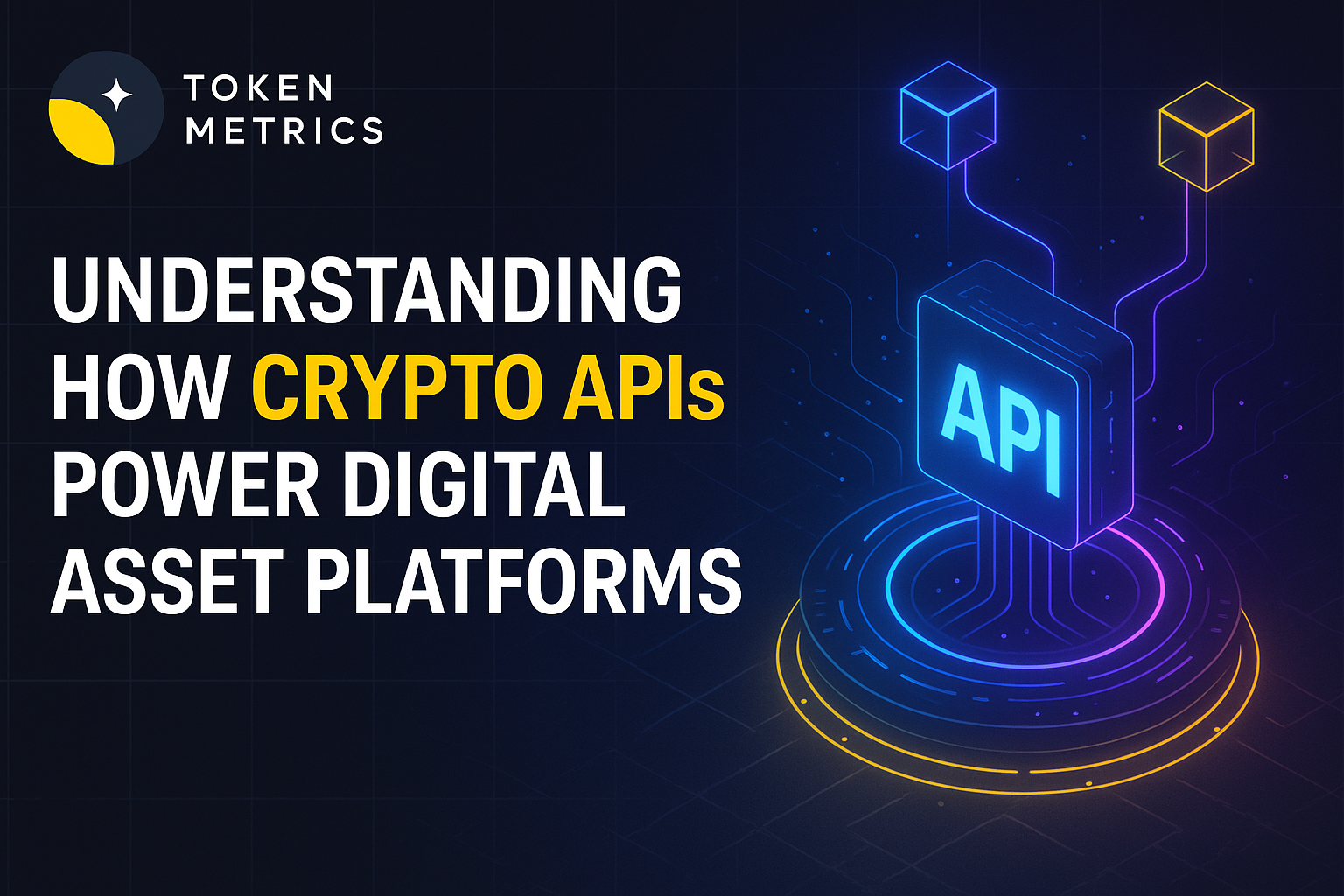Ethereum Wallets - Top 8 Picks for Secure Crypto Storage

As more people invest in Ethereum and engage in decentralized applications (DApps) built on the Ethereum blockchain, the need for secure and reliable Ethereum wallets becomes crucial.
Ethereum wallets serve as digital vaults for storing and managing your Ethereum holdings, allowing you to send, receive, and monitor your transactions securely.
In this article, we will explore some of the best Ethereum wallets available, each offering unique features and benefits to cater to different user requirements.
Ethereum Wallet Overview
An Ethereum wallet is a software application or physical device that allows users to store, manage, and interact with their Ethereum assets. It consists of a private key that enables access to the funds and a public key for receiving funds.
Ethereum wallets come in various forms, including hardware wallets, software wallets, and paper wallets, each with its own set of advantages and considerations.
Best Ethereum Wallets
Here is the list of 8 best Ethereum wallets to consider in 2023
1. MetaMask
MetaMask is a popular Ethereum wallet that functions as a browser extension. It allows users to manage their Ethereum funds directly from their web browser.
MetaMask offers a user-friendly interface, making it an excellent choice for beginners. With MetaMask, you can easily store, send, and receive Ethereum, as well as interact with various DApps seamlessly.
Key features:
- Browser Extension: MetaMask integrates seamlessly with popular web browsers, allowing users to access their Ethereum wallets directly from their browsers.
- Token Management: You can easily manage various ERC-20 tokens within the MetaMask wallet.
- DApp Support: MetaMask provides built-in support for decentralized applications (DApps), enabling seamless interaction with the Ethereum ecosystem.
Pros:
- Easy-to-use interface.
- Browser integration for convenient access.
- Support for ERC-20 tokens and DApps.
Cons:
- Relies on browser extensions, which can pose security risks if not used cautiously.
- No desktop application.
2. Ledger Nano S
For those seeking maximum security, a hardware wallet like the Ledger Nano S is an ideal choice.
The Ledger Nano S is a small device that securely stores your private keys offline, away from potential online threats.
It offers a high level of protection for your Ethereum assets and supports multiple cryptocurrencies, making it a versatile option for crypto enthusiasts.
Key features:
- Cold Storage: Private keys are stored offline on the device, providing an extra layer of security against hacking and malware.
- Multi-Currency Support: In addition to Ethereum, the Ledger Nano S supports a wide range of other cryptocurrencies.
- Backup and Recovery: The device allows users to create a backup of their wallet, ensuring that funds can be easily restored in case of loss or damage.
Pros:
- Excellent security with offline storage.
- Support for multiple cryptocurrencies.
- Backup and recovery options.
Cons:
- Requires an initial investment in the hardware device.
- Not as user-friendly for beginners compared to software crypto wallets.
3. Trezor Model T
Similar to the Ledger Nano S, the Trezor Model T is a hardware wallet designed to keep Ethereum and other cryptocurrencies safe.
It provides advanced security features, including a touchscreen display for secure transaction verification and a PIN code to access your wallet. The Trezor Model T is an excellent option for those who prioritize top-notch security.
Key features:
- Touchscreen Display: The Trezor Model T features a color touchscreen display, making it easier to navigate and confirm transactions.
- Passphrase Support: Users can set up an additional passphrase for enhanced security, protecting against physical theft.
- Password Manager: The wallet includes a built-in password manager, ensuring secure storage of login credentials.
Pros:
- Advanced security features.
- Intuitive touchscreen interface.
- Password management functionality.
Cons:
- Higher price point compared to software wallets.
- Limited storage capacity for certain cryptocurrencies.
4. MyEtherWallet
MyEtherWallet (MEW) is a popular web-based wallet that allows users to create and manage Ethereum wallets easily.
It offers a simple and intuitive interface, making it accessible to both beginners and experienced users. MEW also provides features like token swaps and integration with hardware wallets for enhanced security.
Key features:
- Private Key Control: MEW allows users to retain full control over their private keys, enhancing security.
- Token Compatibility: The wallet supports a wide range of ERC-20 tokens, ensuring compatibility with various Ethereum-based projects.
- Integration with Hardware Wallets: MEW can be connected to hardware wallets like Ledger and Trezor for an added layer of security.
Pros:
- Full control over private keys.
- Wide token compatibility.
- Integration with hardware wallets.
Cons:
- Vulnerable to phishing attacks if users access the website through malicious links.
- Requires careful attention to security practices.
5. Exodus
Exodus is a desktop and mobile wallet that supports various cryptocurrencies, including Ethereum. It offers a visually appealing interface and a user-friendly experience, making it an excellent choice for beginners.
Exodus provides a backup feature to secure your wallet and a built-in exchange for seamless crypto trading.
Key features:
- Portfolio Tracker: The wallet includes a built-in portfolio tracker, allowing users to monitor their cryptocurrency holdings.
- Exchange Integration: Users can exchange cryptocurrencies within the wallet through integrated exchanges, making it convenient for trading.
- Customer Support: Exodus provides 24/7 customer support to address any issues or concerns.
Pros:
- User-friendly interface.
- Portfolio tracking and exchange integration.
- Responsive customer support.
Cons:
- Less secure compared to hardware wallets.
- Limited to supported cryptocurrencies.
6. Trust Wallet
Trust Wallet is a mobile wallet that enables users to manage their Ethereum and interact with DApps directly from their smartphones.
It offers a decentralized and secure platform for storing and trading Ethereum, with a user-friendly interface. Trust Wallet also supports various other cryptocurrencies, making it a versatile option for multi-asset holders.
Key features:
- Mobile Accessibility: Trust Wallet is available for both iOS and Android devices, allowing users to access their wallets from anywhere.
- DApp Browser: The wallet includes a built-in DApp browser, enabling direct interaction with decentralized applications.
- Biometric Authentication: Users can secure their wallets using biometric .authentication methods, such as fingerprint or face recognition.
Pros:
- Mobile convenience and accessibility.
- Built-in DApp browser for easy interaction.
- Biometric authentication for enhanced security.
Cons:
- Limited to mobile devices.
- Potential security risks if the device is compromised.
7. Atomic Wallet
Atomic Wallet is a multi-cryptocurrency wallet that supports Ethereum and many other digital assets. It provides a sleek and user-friendly interface, along with features like staking and decentralized exchanges.
Atomic Wallet offers enhanced security with private key encryption and local storage, ensuring the safety of your Ethereum holdings.
Key Features:
- Multi-currency Support.
- It features a built-in decentralized exchange that enables users to swap cryptocurrencies directly.
- Atomic Wallet supports atomic swaps, which allows for peer-to-peer cryptocurrency trades without the need for intermediaries.
- The wallet offers staking capabilities, allowing users to earn passive income.
Pros:
- Atomic Wallet has an intuitive and user-friendly interface.
- Cross-Platform Compatibility: It is available for desktop, mobile, and as a web-based wallet, providing flexibility and accessibility.
- Atomic Wallet is privacy focused and does not collect or store users' personal information, enhancing privacy and anonymity.
- Atomic Wallet has an active community and provides support through various channels.
Cons:
- Limited Currency Support.
- Atomic Wallet relies on the underlying blockchain networks for transactions, so users may encounter varying network fees depending on the cryptocurrency.
- Although Atomic Wallet emphasizes security, some features, such as the built-in exchange, rely on centralized components, which may introduce some level of centralization and counterparty risk.
8. Guarda Wallet
Guarda serves as a secure and user-friendly non-custodial Ethereum wallet, ensuring the utmost protection for your digital assets. With its intuitive interface, Guarda offers seamless access through desktop, mobile, and web platforms.
When you create a Guarda wallet, you retain exclusive control over your private key. This empowers you to have full authority over your Ethereum holdings and other cryptocurrencies.
Guarda wallet sets itself apart by not requiring any personal information, establishing it as the preferred choice among leading Ethereum wallets.
Key Features:
- Guarda Wallet supports a wide range of cryptocurrencies, allowing users to store, send, receive, and manage different digital assets in one place.
- The wallet provides an integrated exchange service that allows users to swap cryptocurrencies within the wallet interface.
- Guarda Wallet supports hardware wallet integration, enabling users to enhance the security of their funds.
- Users can create their own tokens on selected blockchain networks using Guarda Wallet's token generation feature.
Pros:
- Guarda Wallet offers a high level of security with features such as encryption, private key control, and hardware wallet integration, enhancing the protection of users' funds.
- The wallet's availability on various platforms ensures that users can access their funds and manage their assets from different devices.
- Guarda Wallet's support for a wide range of cryptocurrencies allows users to manage all their digital assets in one wallet, reducing the need for multiple wallets.
- The wallet's intuitive interface and simple navigation make it easy for users to perform various cryptocurrency transactions.
Cons:
- While Guarda Wallet offers an integrated exchange service, it relies on centralized exchanges for executing trades, which may raise concerns for users who prioritize decentralized trading options.
- Compared to some other wallets, Guarda Wallet may have a more limited range of integrations with external platforms and services.
- Guarda Wallet is a custodial wallet, meaning that the user's private keys are stored on Guarda's servers. This introduces a level of reliance on the wallet provider, as they have control over the user's funds.
Also Read - Is Ethereum Dead? - Complete Analysis for ETH Investors
Frequently Asked Questions
Q1. Can I use any Ethereum wallet to store other cryptocurrencies?
While some wallets, like Exodus and Atomic Wallet, support multiple cryptocurrencies, not all Ethereum wallets are designed to store other digital assets.
Make sure to check the wallet's supported cryptocurrencies before using it for anything other than Ethereum.
Q2. Are hardware wallets like Ledger Nano S and Trezor Model T worth the investment?
Hardware wallets provide an extra layer of security by keeping your private keys offline. If you hold a significant amount of Ethereum or other cryptocurrencies, investing in a hardware wallet can offer peace of mind and protect your assets from potential online threats.
Q3. Can I access my Ethereum wallet from multiple devices?
Yes, some wallets like Jaxx Liberty and Atomic Wallet offer cross-platform support, allowing you to access your Ethereum wallet from various devices, including desktop, mobile, and browser extensions. This flexibility enables you to manage your assets conveniently.
Q4. What should I do if I forget my Ethereum wallet's password?
It's crucial to securely store your wallet password or recovery seed phrase. If you forget your password, some wallets provide a recovery process using the seed phrase.
However, if you lose both your password and seed phrase, it may result in permanent loss of access to your wallet and funds.
Q5. Are mobile wallets secure for storing Ethereum?
Mobile wallets like Trust Wallet provide a secure and convenient way to store Ethereum. They offer features like biometric authentication and encryption to safeguard your funds.
However, it's essential to practice good mobile security habits, such as keeping your device's operating system and wallet app up to date.
Conclusion
In conclusion, selecting the best Ethereum wallet depends on your specific requirements, preferences, and security concerns. The wallets mentioned in this article offer a range of options, from user-friendly web wallets to advanced hardware wallets.
Assess the features, security measures, and ease of use to find the perfect Ethereum wallet that suits your needs. Safeguard your Ethereum assets and explore the vast possibilities of the Ethereum ecosystem with confidence.
Disclaimer
The information provided on this website does not constitute investment advice, financial advice, trading advice, or any other sort of advice and you should not treat any of the website's content as such.
Token Metrics does not recommend that any cryptocurrency should be bought, sold, or held by you. Do conduct your own due diligence and consult your financial advisor before making any investment decisions.
Create Your Free Token Metrics Account

.png)




%201.svg)
%201.svg)


%201.svg)










.svg)




.png)